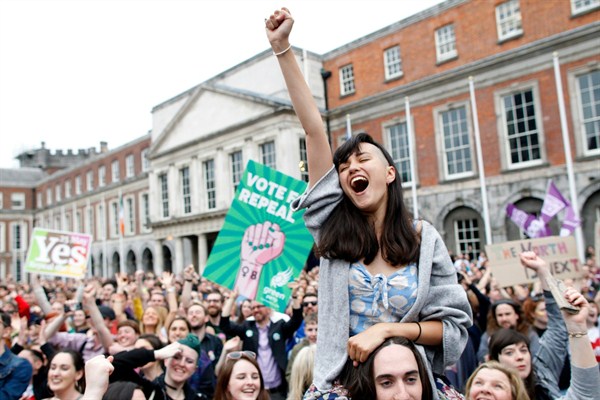The Republic of Ireland has historically remained out of step with the vast majority of Europe when it comes to abortion. Although more than 80 percent of the Council of Europe’s 47 member states permit abortion without restriction at the request of the woman, Ireland has been steadfastly committed to strict pro-life legislation, permitting legal abortion only under the most limited of circumstances, forcing many women to travel out of country to exercise their choice. But that is suddenly shifting, after the landslide result on May 25 of a referendum that will bring dramatic changes to abortion policy in Ireland.
The referendum put to the public the question of whether to repeal the Eighth Amendment of the Irish Constitution, which gives equal value to the life of the fetus as to the mother, and effectively made access to abortion impossible for the majority of Irish women. The amendment, which was inserted into the Constitution following an earlier referendum in 1983, has proven problematic over time and has been the subject of criticism in Ireland and abroad. A divisive social issue, it reflects a cultural and philosophical shift taking place in Ireland as the strong hold of the Catholic Church on Irish politics diminishes and a new generation of Irish voters—many of whom were not alive or were too young to remember the 1983 referendum—can now vote to influence national policy. According to the National Youth Council of Ireland, there was an “unprecedented surge of voter registration” leading up to the referendum vote, with up to 125,000 new voters, many of them between 18 and 29 years old.
There is reason to believe this next generation of Irish voters will be more liberal in their approaches to social issues than their predecessors. In 2015, for example, Ireland made history by becoming the first nation to legalize gay marriage by popular vote; 62.1 percent of voters were in favor, a startling outcome for conservatives and Catholics. In a surprisingly short time, Ireland has gone from being a conservative and deeply religious country to voicing more liberal values and outpacing much of Europe on some progressive issues.

